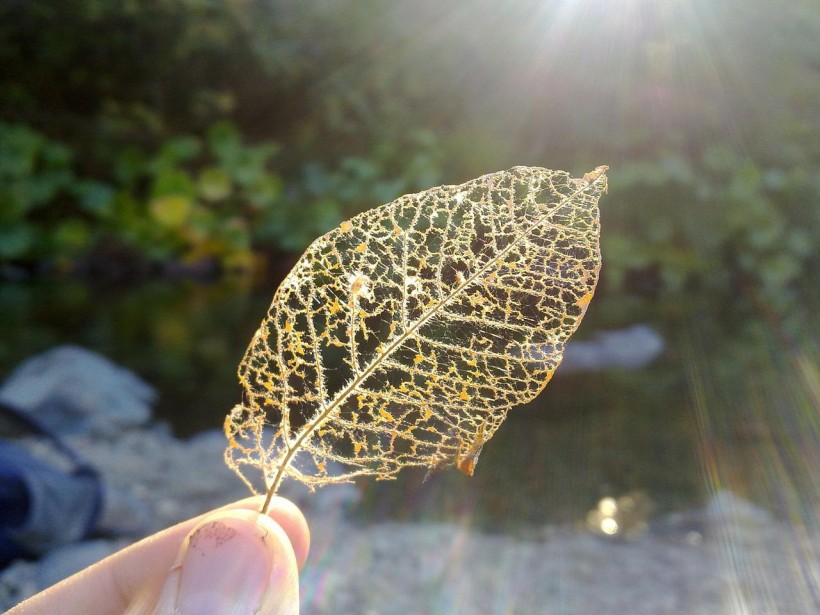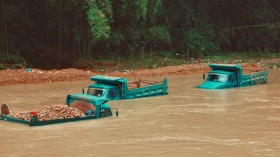Simply put, decomposition is an ongoing phenomenon which begins at the time of death when the complex organic components of the previously living organism slowly separate into simpler elements till the body is reduced to a skeleton.
Unless the body is cremated or destroyed in some other way after death, it will inevitably suffer the fate of decomposition. Preserving it with embalming fluids or placing it in a wooden casket in no way halts the process, except that it only delays it.
Far from being considered dead, a corpse is actually teeming with life, from both outside and within. Scientists believe this to be a cornerstone of a complex ecosystem that is said to flourish after death and evolves as the process of decomposition progresses.
Decomposition begins soon after death, in fact after just several minutes, when a process called self-digestion or autolysis starts taking place. The bacteria which start thriving off the dead body help forensic investigators a lot about how, why and when a person died.
When the heart stops beating, the body cells are deprived of their oxygen and as a result their acidity increases due to the products of the toxic chemical reactions getting accumulated inside the cells.
The enzymes then start to digest the membranes of the cells and leak out as the cells break down. As our liver is enriched with enzymes, the process usually begins there and then in the brain, which has a high water content.
Eventually all other organs and tissues begin to break down in the same way, with the damaged blood cells spilling out of their broken veins and settling in the capillaries due to the force of gravity, ultimately leading to discoloration of the whole skin.
Science of cadaveric decomposition
In natural conditions, human decomposition generally follows a set process. Studying how insects and other external factors affect decomposition can assist federal law enforcement officers in their investigation.
Even students of criminal justice can gain a lot of professional experience by participating in workshops at forensic psychology research facilities. You need to choose the best online school for criminal justice degree to ensure you get to participate in such workshops.
How do human bodies decay?
A 'body farm ' set up in Knoxville's Anthropology Research Facility, at the University of Tennessee, is one of the few facilities in the world where researchers and law enforcement agencies study the science of human decay to recover evidence at crime scenes.
The main focus at the farm is to find out the time since death, an important aspect of forensic investigation that can help shrink the pool of thousands of unsolved cases related to missing humans.
As decomposition begins to roll, forensic anthropologists define five physical phases of rot and decay:
-
FRESH: When a person has just died and the body looks relatively normal.
-
BLOATED: When the body gets filled up with glasses and bloats up.
-
ACTIVE DECAY: When the soft tissues of the body begin to decompose.
-
ADVANCED DECAY: When the body is crawling with maggots and begins to rot
-
DRY SKELETAL REMAINS: When the body is reduced to skull and bones.
During each stage, experts keep a sharp eye on the maggots wriggling in the flesh of a corpse. Their arrival is like the start of a biological clock that gives investigators an insight to the approximate time the maggots began to colonize the body. The system, however, still needs to be perfected.
Timeline of body decomposition
The internal organs decompose 24-72 hours after death.
Body starts to bloat and blood tainted foam leaks from the mouth and nose 3-5 days after death.
The body colour turns from green to red as the body organs in the abdomen start to accumulate gas after 8-10 days after death
The nails and teeth begin to fall out several weeks after death.
Finally, about a month after the death the body begins to liquefy.
The ugly truth is that, eventually, almost each one of us will go through this process of decay, whether we like it or not.
© 2024 NatureWorldNews.com All rights reserved. Do not reproduce without permission.
* This is a contributed article and this content does not necessarily represent the views of natureworldnews.com





![Great White Sharks Observed for the First Time Changing Their Behavior in Different Marine Environments [Study]](https://1471793142.rsc.cdn77.org/data/thumbs/full/70251/280/157/50/40/great-white-sharks-observed-for-the-first-time-changing-their-behavior-in-different-marine-environments-study.jpg)
